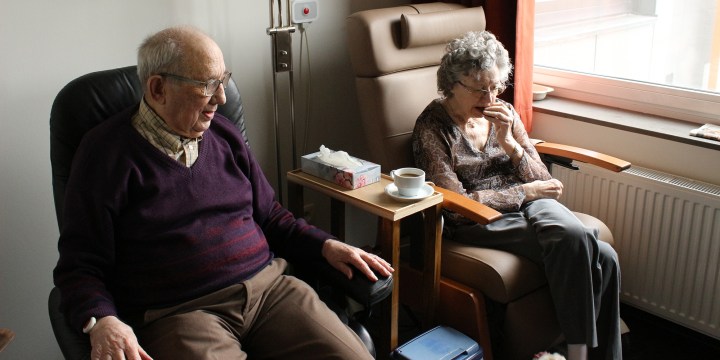PERSONAL FINANCE
Women are defying the gender pay gap and saving more for retirement than men – report

Women are more worried about their savings than men, and they plan ahead better than men do.
Every August, as the country observes Women’s Month, we hear the same old rhetoric about gender pay gaps and how women need to save more. While both remain true, South African women claim to have saved more on average than their male counterparts by almost half a million rand.
According to the 2022 Retirement Insights research report from retirement income specialist Just SA, women are also putting more thought into retirement planning than men are.
The study surveyed South Africans older than 50, in retirement or approaching it. About a quarter of female respondents have thought extensively about their potential cognitive decline and have made proper plans to protect their financial future, compared with just 16% of men.
According to the Human Sciences Research Council and the South African Institute of Race Relations, more than 40% of South African mothers are single parents.
The Just SA research report shows that women are less likely to take risks with their money compared with men.
About half of the men surveyed said they were confident they had enough money to cover their expenses in retirement, but only 38% of women felt the same way.
Heather Bell, business development manager at Just SA, says it is positive to see women taking strides in improving their financial literacy and independence, and being able to provide better for retirement.
“However, the results of Just Retirement Insights 2022 also reflect an overriding feeling of uncertainty from female respondents regarding their retirement future,” she says.
“For example, a quarter of female respondents confirmed that they cannot afford to lose any money in a market crash.”
According to Bell, women typically face additional gender-related pressures as they head into retirement, such as less income to save and a longer life expectancy.
Women underestimate life span
Just SA’s statistics show life expectancy for a 65-year-old in South Africa to be 87 for women as opposed to 82 for men, with 25% of women aged 65 likely to reach 94 and a further 10% living to celebrate their 100th birthday. Bell notes that increased longevity makes women more susceptible to degenerative diseases while increasing their chances of becoming a financial burden on children in their late stages of life.
Saleem Sonday, head of group savings and investments at Allan Gray, says important conversations and urgent action are now more necessary than ever to level the playing field and close the gap in retirement outcomes between men and women.
The country has laws to prevent gender discrimination in the workplace, according to an article published by the University of Stellenbosch Business School, derived from a paper titled Gender pay transparency mechanisms: Future directions for South Africa. Yet South Africa has a stagnant median gender pay gap of between 23% and 35%, affecting women in the middle and upper wage bands the most.
Visit Daily Maverick’s home page for more news, analysis and investigations
The research finds that about 38% of households are headed by women, and that female-headed households are about 40% poorer than those headed by males.
The gender gap is not unique to our shores. Research recently conducted by the British financial services provider Legal & General, surveying more than 4.5 million savers in the UK, found that the gender pension gap was 16% at the beginning of women’s careers, reaching 55% at the point of retirement.
The research found that the gap widens as women reach their forties due to the impact of career breaks, as well as unequal caring responsibilities.
The South African research company Eighty20’s latest credit bureau data show that women account for 57% of the 19 million credit-active consumers in South Africa. The same report shows that 58% of loans in arrears are held by women.
Charnel Collins, chief executive of National Debt Advisors, a debt counselling company, says that although no one has been immune to the financial devastation of the Covid pandemic, women took the brunt of the financial losses in the months following the initial lockdown.
Another leading cause of overindebtedness among women is financial abuse, part of the scourge of domestic abuse in SA.
“Although not as physically visible [as violent abuse], financial abuse is still the lived experience of many South African women,” says Collins.
“Some identifiable signs of financial abuse include abusers taking out loans or opening accounts in their partners’ names, making their partners stop work so that they are dependent on them, forcing their partners to hand their wages over to them, or continuously relying on the partner to foot the financial responsibilities of the household even when they also earn a living.” DM168
This story first appeared in our weekly Daily Maverick 168 newspaper, which is available countrywide for R25.

















 Become an Insider
Become an Insider
Comments - Please login in order to comment.